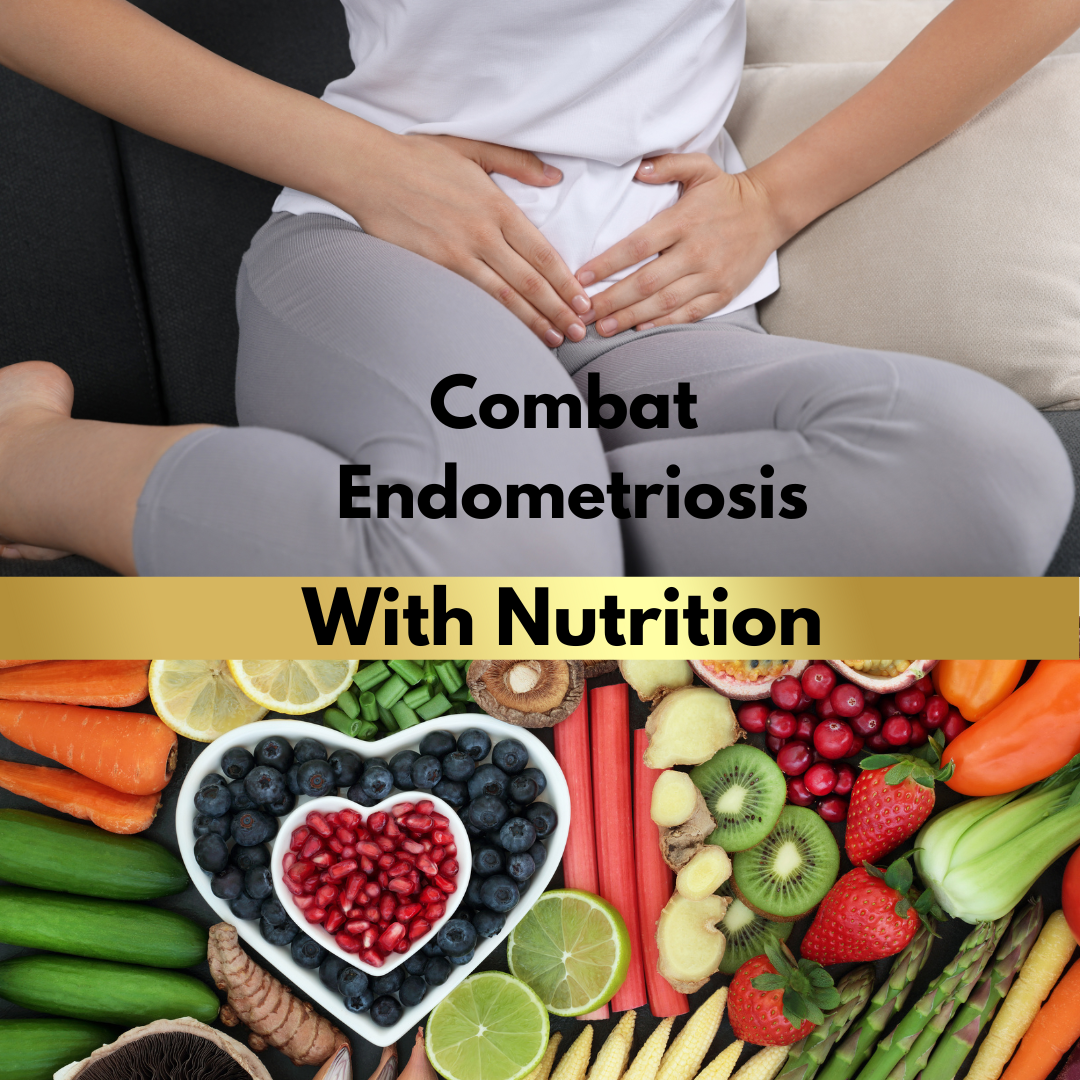Nourish the Battle Against Endometriosis

As we prepare to dive in March, which is Endometriosis Awareness month, we are brought back to using a hollistic approach to help manage symptoms of this chronic pelvic health condition.
Endometriosis affects millions of women worldwide. Endometriosis can lead to debilitating pain, fertility issues, and a range of other symptoms. Emerging research suggests that adopting a targeted nutritional approach can significantly contribute to managing the symptoms and improving the overall quality of life for those with endometriosis.
Understanding Endometriosis
Before delving into the role of nutrition, it’s essential to comprehend the nature of endometriosis. Endometriosis is a chronic pelvic condition in which tissue similar to the tissue that lines the uterus grows outside the uterus. This tissue can cause inflammation, pain, and the formation of scar tissue or adhesions. The severity of symptoms varies among individuals, making it a complex condition to manage. Conventional treatments often involve surgery or hormonal therapies, but this treatment plan doesn’t work for everyone.
The Inflammatory Connection
In recent years, researchers have been exploring the connection between nutrition and inflammation – a key player in endometriosis. Certain foods, such as those high in trans fats, refined sugars, and processed carbohydrates, can trigger inflammatory responses in the body. Inflammation, in turn, exacerbates the symptoms of endometriosis. Adopting an anti-inflammatory diet becomes crucial in mitigating these effects.
Anti-Inflammatory Diet
An anti-inflammatory diet focuses on whole, nutrient-dense foods that possess natural anti-inflammatory properties. Foods rich in omega-3 fatty acids, antioxidants, and fiber can help combat inflammation. Fatty fish, flaxseeds, walnuts, berries, and leafy greens are excellent choices. Additionally, incorporating turmeric, ginger, and green tea into the diet can provide anti-inflammatory benefits. Check out our blog on anti-inflammatory foods for more info.
Managing Hormonal Imbalances
Endometriosis is often associated with hormonal imbalances, particularly elevated levels of estrogen. Nutrition plays a pivotal role in regulating hormonal fluctuations. Cruciferous vegetables like broccoli, cauliflower, and brussels sprouts contain compounds that support estrogen metabolism. Balancing estrogen levels through nutrition can contribute to alleviating symptoms and reducing the recurrence of endometriotic growth.
Mindful Eating for Pain Management
Chronic pain is a hallmark of endometriosis, and certain foods may either exacerbate or alleviate this pain. Adopting mindful eating practices can help individuals identify trigger foods and make choices that support pain management.
Common food and beverage items that can influence inflammation and chronic pain include caffeine, alcohol, and spicy foods. For some people, avoiding food sensitivities like gluten, diary and soy, which are harder to digest, is a quick solution to give your digestive system a break. This can be challenging and may require recording symptoms using a food diary. Bone broth and supplements can help to speed up digestive system recovery. There are also tasty gluten and diary free options available at various restaurants throughout the city.
The Gut-Endometrium Axis
Recent research has shed light on the gut microbiome’s role in influencing endometriosis symptoms. A healthy gut contributes to overall well-being and can impact inflammation levels. Probiotics, found in yogurt, kefir, and fermented foods, promote a balanced gut microbiome. By supporting gut health, individuals with endometriosis may experience improvements in their symptoms.
We understand that nutrition alone cannot cure endometriosis. We believe that adopting a holistic approach that includes a well-balanced, anti-inflammatory diet can significantly contribute to symptom management and improve overall well-being. Understanding the intricate relationship between nutrition, inflammation, and hormonal balance empowers individuals to make informed dietary choices. As research continues to unfold, incorporating these nutritional strategies into the overall treatment plan for endometriosis may help some with pain relief and chronic pain management.







